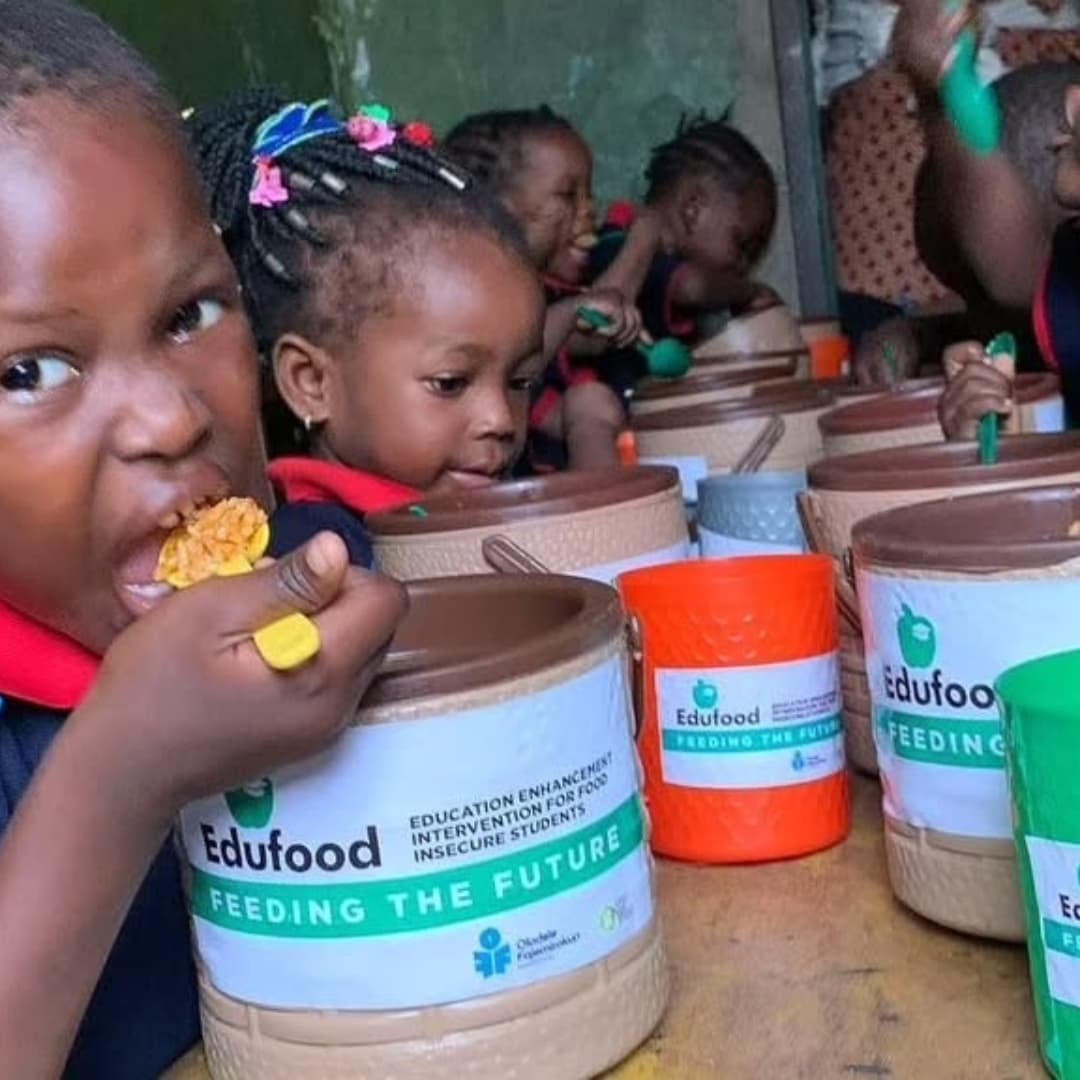Hunger remains one of the most pervasive challenges facing Africa, with far-reaching consequences for education. In a continent where over 50 million children are out of school, the link between food insecurity and school dropouts cannot be overstated. Hunger not only stunts physical growth but also impedes cognitive development and school attendance, creating a vicious cycle of poverty and illiteracy. The Lagos Food Bank Initiative (LFBI), through its Education Enhancement Intervention for Food Insecure Students (EDUFOOD) program, is tackling this issue head-on by addressing hunger, a significant root-0cause of educational inequality.
Hunger: A Barrier to Education
Food insecurity exacerbates the dropout crisis in Africa. Children from food-insecure households are often forced to miss school in search of food or engage in child labor to support their families. Even when they attend school, hunger affects their ability to concentrate and perform academically. Studies have shown that malnourished children score significantly lower on standardized tests and are more likely to repeat grades or drop out altogether.
The EDUFOOD Program: A Holistic Solution
The EDUFOOD program illustrates how targeted measures can alleviate the negative effects of hunger on learning. Established as part of LFBI’s broader mission to reduce hunger and malnutrition, EDUFOOD provides nutritious meals to food-insecure students while also addressing other educational needs. By ensuring that students have access to at least one balanced meal daily, the program significantly improves school attendance, cognitive function, and overall academic performance.
The program aligns with LFBI’s vision of a hunger-free Nigeria and its mission to combat hunger and malnutrition through innovative and sustainable food interventions. In addition to meal provisions, EDUFOOD incorporates nutrition education to promote long-term health and well-being. Parents and teachers are also engaged to create a supportive ecosystem for students, ensuring that the benefits of the program extend beyond the classroom.
LFBI’s Impact
Since its inception, the EDUFOOD program has reached thousands of students across Lagos, with measurable improvements in attendance and academic outcomes. Schools participating in the program have reported a significant increase in student retention rates, as well as enhanced focus and engagement during lessons. By breaking the cycle of hunger, EDUFOOD empowers children to pursue education and build a better future for themselves and their communities.
The Bigger Picture
Programs like EDUFOOD highlight the critical role of food banks in addressing systemic issues such as educational inequality. Food insecurity is not just a humanitarian concern; it is a development issue that affects economic growth, public health, and social stability. The World Bank’s report titled, “Poverty and Hunger: Issues and Options for Food Security in Developing Countries,” provides an in-depth analysis of these interconnections. By investing in initiatives that integrate food support with educational interventions, organizations like the Lagos Food Bank Initiative are paving the way for a more equitable and prosperous nation.
Optimizing Hunger Solutions for Education
Search terms such as “hunger and education in Africa” and “school feeding programs in Africa” often spotlight the importance of initiatives like EDUFOOD. By tackling food insecurity and school attendance alongside child malnutrition and educational outcomes, LFBI’s holistic approach ensures that no child has to choose between a meal and an education.
The interplay between hunger and school dropouts in Africa underscores the urgency of addressing food insecurity as part of educational reform. Through innovative programs like EDUFOOD, The Lagos Food Bank Initiative demonstrates that tackling hunger is not just about feeding the hungry but also about empowering the next generation. As the saying goes, “A hungry child cannot learn.” By ensuring that no child has to choose between a meal and an education, LFBI is creating a foundation for lasting change.
Article written by Adedoyin Ogunsanya



Taiwo
April 30, 2025Nice initiative by the Lagos Food Bank. In the process of getting money or food itself,some children have become slaves to those that can help them.
I read about a 15 years old recently whose helpers usually sleep with before giving her money to get food. Not just one or two guys but a lot. It’s so disheartening. Weldone LAGOS FOOD BANK. Weldone ADEDOYIN OGUNSANYA